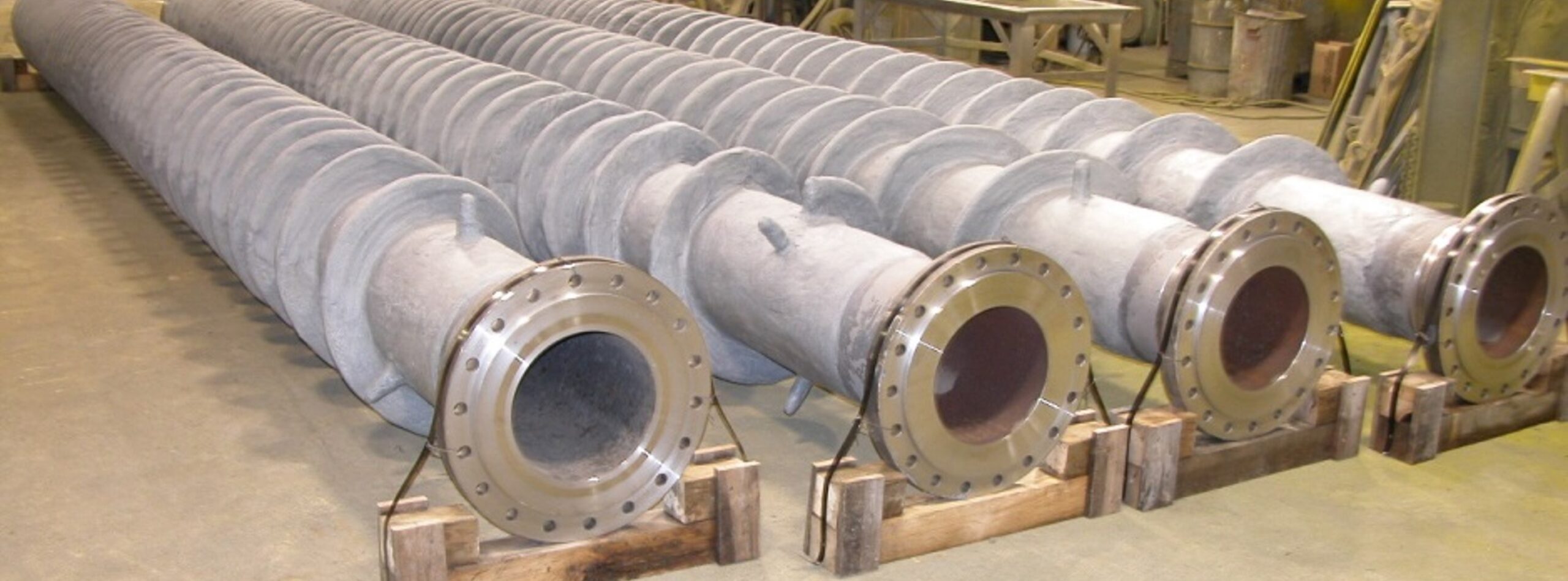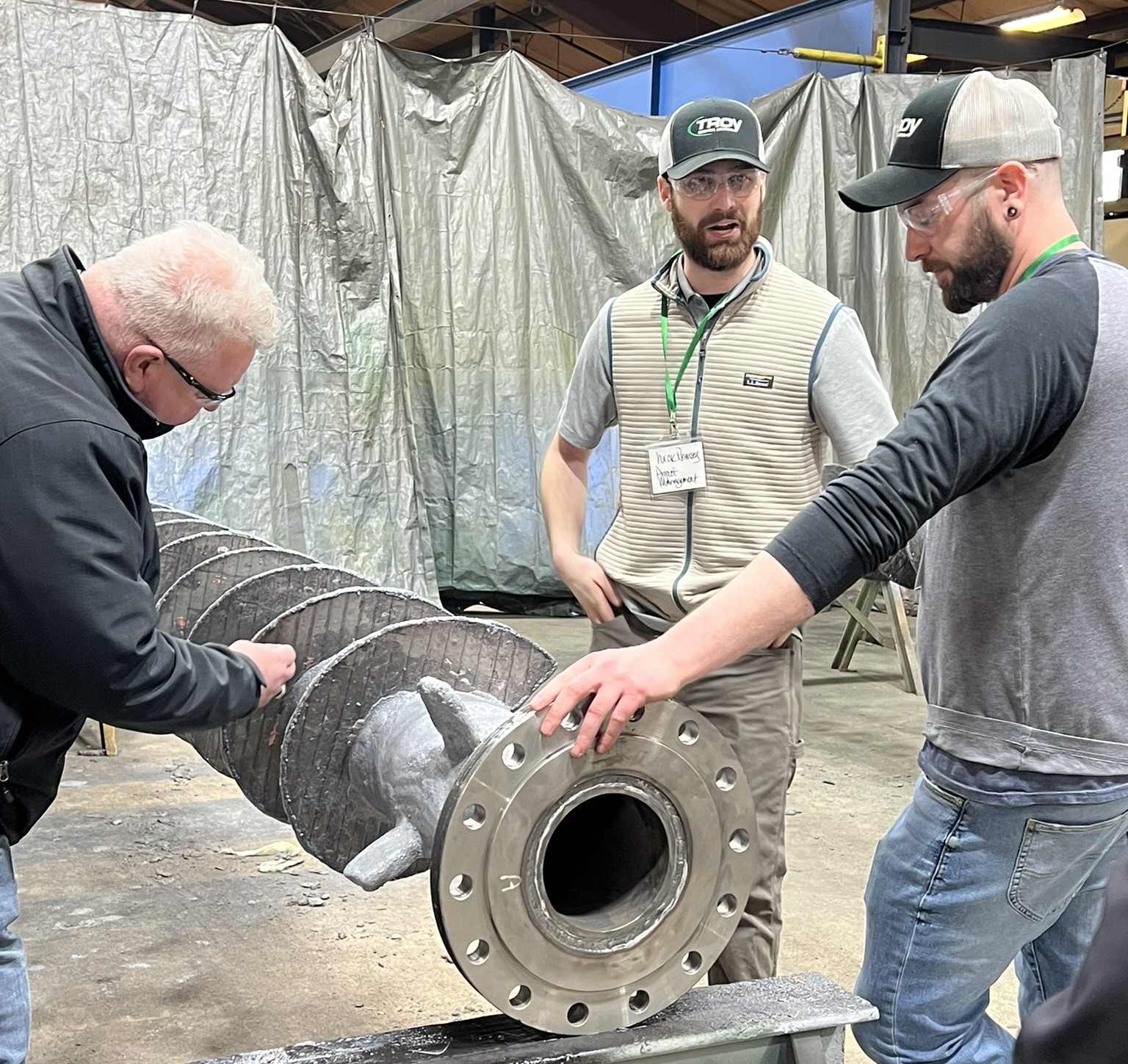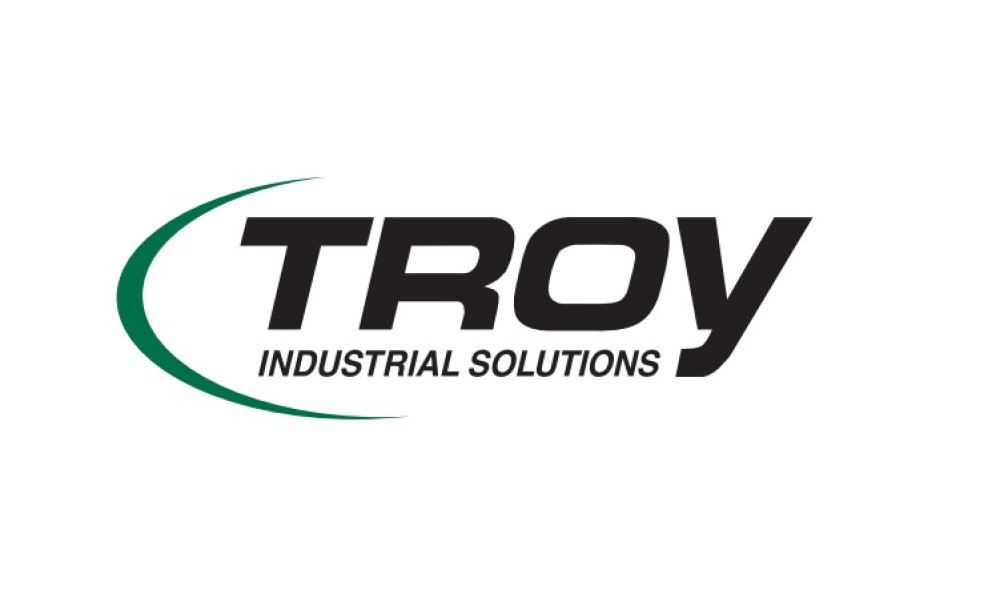The Crucial Role of Screw Conveyors
in a Variety of Industries
When it comes to industrial machinery, at Troy Industrial Solutions (TIS), we know screw conveyors play a pivotal role in ensuring the seamless movement of bulk materials. These versatile machines are integral to various industries, including sawmills, furniture manufacturing, woody biomass power plants, pulp and paper industries, wastewater treatment facilities, and more. In this blog post, TIS will review the importance of screw conveyors, explore their inner workings, highlight technological advancements, and provide industry-specific examples of types of screw conveyors.. We will also discuss the customization, maintenance, safety aspects, and environmental benefits of utilizing screw conveyors for your industry.
Understanding Screw Conveyors
Screw conveyors, also known as auger conveyors, are designed to move bulk materials linearly from one point to another. They consist of a rotating helicoid screw blade, known as a flight, which is mounted on a shaft and enclosed within a trough. As the screw rotates, it pushes the material along the trough to the desired location.
Types of Screw Conveyors
- Horizontal Screw Conveyors: Ideal for consistent material flow in a horizontal direction.
- Inclined Screw Conveyors: Suitable for elevating materials at an angle, providing installation flexibility.
- Vertical Screw Conveyors: Perfect for lifting materials to higher levels, often used in compact spaces.
- Flexible Screw Conveyors: Adaptable to various angles and directions, offering versatility in material handling.
Each type of screw conveyor is designed to address specific material handling needs, making them indispensable across diverse industrial applications.
Sawmills and Furniture Manufacturers
Sawmills and furniture manufacturers generate significant by-products such as sawdust, chips, and bark. Efficiently handling these by-products is crucial for maintaining a clean and productive environment. Screw conveyors are employed to transport these materials away from production areas to designated storage or processing locations.
In sawmills, screw conveyors help clear waste materials like sawdust and chips, which are often recycled as boiler fuel or transformed into wood pellets for heating. This not only reduces waste but also provides a sustainable energy source. Similarly, furniture manufacturers use screw conveyors to manage wood by-products, ensuring a clean workspace and contributing to recycling efforts.

Woody Biomass Power Plants
Woody biomass power plants rely on screw conveyors to manage the flow of wood fuel into boilers and remove spent fly ash from the facility. These power plants convert wood waste into energy, making screw conveyors essential for feeding wood chips and other biomass materials into the combustion process. The enclosed design of screw conveyors helps control dust and mitigate fire hazards.
Pulp and Paper Industries
In the pulp and paper industry, screw conveyors are used to mix pulping chemicals and transport wood chips through various stages of the production process. The ability to handle a wide range of materials, from fine powders to larger chips, makes screw conveyors ideal for this industry. They ensure a consistent and efficient flow of materials, contributing to the overall productivity of the manufacturing process.
Wastewater Treatment Facilities
Wastewater treatment facilities utilize screw conveyors to move treated sludge to trucks or bins for disposal. These facilities generate large volumes of sludge that need to be efficiently transported to avoid contamination and ensure proper waste management. Screw conveyors, with their enclosed design, help control odors and prevent spillage, making them an excellent choice for handling wastewater by-products.
Technological Advancements and Innovations
Technological advancements have significantly improved the efficiency and functionality of screw conveyors. Innovations such as variable pitch screws, specialized coatings, and advanced drive systems have enhanced the performance and durability of these machines.
- Variable Pitch Screws: Allow for customized material flow rates, ensuring optimal handling of different materials.
- Specialized Coatings: Provide resistance to abrasion and corrosion, extending the lifespan of screw conveyors in harsh environments.
- Advanced Drive Systems: Offer precise control over rotation speed and torque, improving the efficiency of material handling operations.
These advancements have made screw conveyors more adaptable and reliable, meeting the evolving needs of various industries.
Customization for Specific Industries
Screw conveyors can be custom-designed to meet the unique requirements of different industries. For instance, a food-grade screw conveyor must adhere to strict hygiene standards to prevent contamination. These conveyors are typically made from stainless steel and feature smooth surfaces for easy cleaning.
In contrast, screw conveyors used in construction or mining may require robust construction to handle abrasive materials. Customization ensures that each screw conveyor is tailored to the specific material being conveyed, enhancing safety and efficiency.
Maintenance and Safety Aspects
Regular maintenance is essential to ensure the longevity and optimal performance of screw conveyors. Routine inspections, lubrication, and timely replacement of worn components can prevent unexpected breakdowns and minimize downtime. Following manufacturer recommendations and establishing a maintenance schedule is crucial to identify potential issues before they escalate.
Safety protocols are equally important. Operators should receive proper training on the safe operation of screw conveyors, and safety guards should be in place to prevent accidental contact with moving parts. Adhering to safety guidelines not only protects workers but also extends the lifespan of the equipment.
Environmental Benefits
Screw conveyors contribute to environmental sustainability by facilitating the recycling and reuse of by-products. For example, sawdust and wood chips transported by screw conveyors can be used as boiler fuel or converted into wood pellets, reducing waste and providing renewable energy sources. In wastewater treatment facilities, screw conveyors help manage sludge, ensuring proper disposal and minimizing environmental impact.
By promoting the efficient use of by-products, screw conveyors play a vital role in reducing waste and supporting sustainable practices in various industries.
Conclusion
Screw conveyors are indispensable in numerous industries, including sawmills, furniture manufacturing, woody biomass power plants, pulp and paper industries, and wastewater treatment facilities. Their ability to handle a wide range of materials, combined with technological advancements and customization options, makes them a versatile and reliable solution for material handling.
With regular maintenance and adherence to safety protocols, screw conveyors can provide many years of efficient service. Moreover, their contribution to environmental sustainability through the recycling and reusing of by-products underscores their importance in modern industrial operations.
For businesses looking to enhance productivity, reduce waste, and support sustainable practices, integrating screw conveyors into their operations is a strategic and beneficial choice.
We are Here to Help

Screw conveyors, also known as auger conveyors, are designed to move bulk materials linearly from one point to another.
For expert guidance on selecting and maintaining the ideal screw conveyor for your needs, reach out to Troy Industrial Solutions. Our specialists are prepared to assist you in achieving efficient material handling. Visit our FAQ’s on Screw Conveyors and contact us to learn more or request a discussion.










